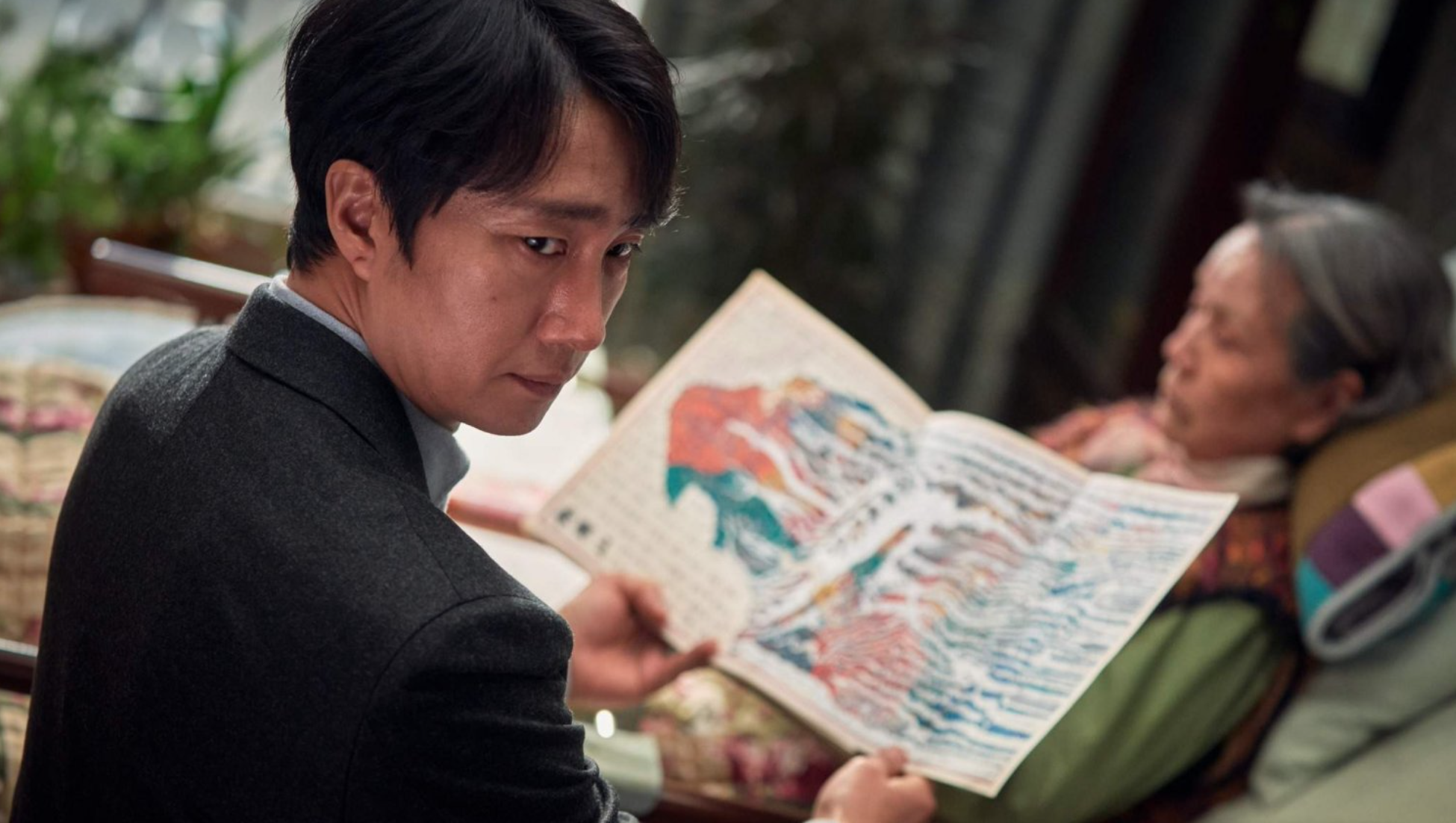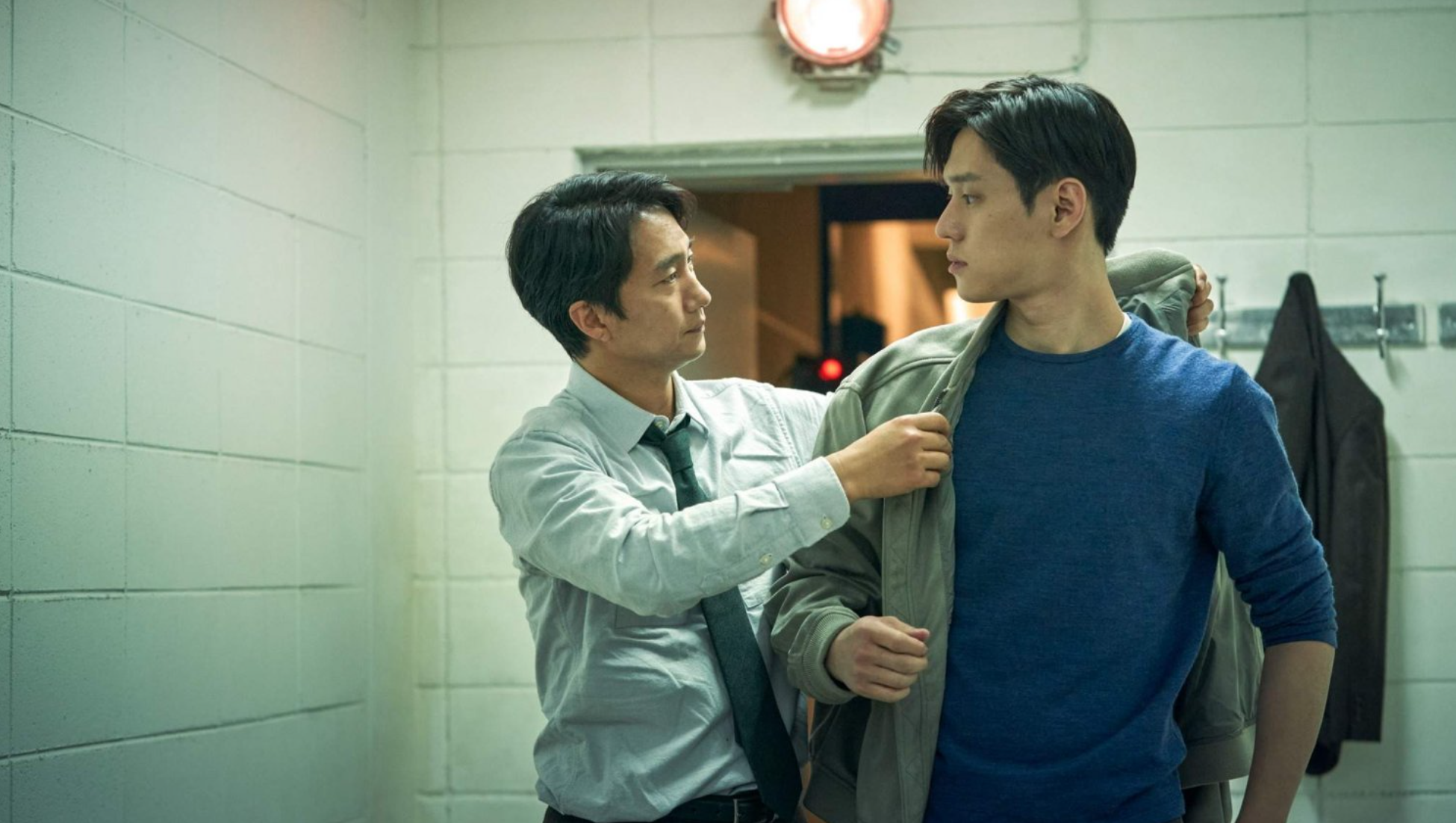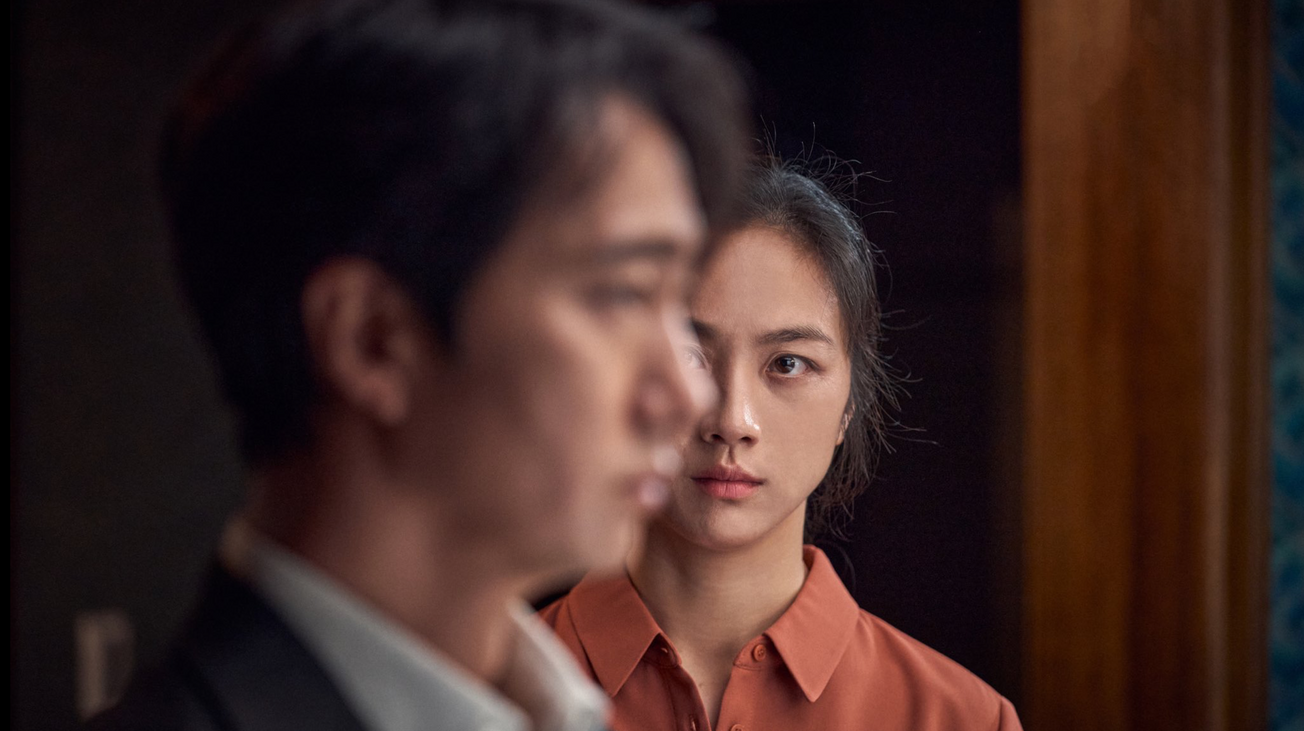By Shreyas Kannan, News Subeditor
The director of many acclaimed films such as The Handmaiden (2016) and Oldboy (2003); Park Chan-Wook's A Decision to Leave is a suave, stylish and chaste detective thriller that hides more than meets the eye. It follows a diligent detective obsessing over a series of murders in a city, which unwittingly results in him and the prime suspect developing romantic feelings.

Park Chan-Wook masterfully constructs a film that lends the viewer the eye of the detective, but not so that they can try to solve the case. The perpetrator is already known, the motive is love and only its diverse expressions remain to be uncovered.
Park uses luxurious imagery in the midst of fast-paced shots and hastened explanations, remaining remarkably aloof when trying to convey the heart of the film’s message. Whether it be cutting pomegranates, then suddenly moving into a jarring chase scene, Park carefully inserts imagery that caters to what one really notices; all to gently nudge to viewer seamlessly along with the film’s direction.

The cinematography has more of Park’s distinct style. Some shots are overpopulated, but most are stark with beautiful wide skies or spotless surroundings. They serve as a blank slate to embolden the emotions and dialogues drawn upon them and to be painted by the emotions induced in the viewer.
Wide shots with expansive beaches or pristine white walls press their weight on the minuscule characters to highlight their vulnerability. A reminder of how the sheer weight of the world and its constraints stifle any glimmer of hope that the characters can be together. In the end, for all their cat-and-mouse games, the detective is still a detective, and his lover is still a criminal.

The film manages to normalise the killings and murders committed to the point where the audience becomes numb to its criminality. Their subversion into acts of love is another example of how this film plays with the detective genre. Murders are no longer harrowing events; suspects aren’t treated insidiously, and the perpetrator is already known.
Yet, the film isn’t a conventional romance either. The detective and the lover mostly communicate in subtle gazes, gestures, or texts and we never see them intimately. This only enunciates the rare moments that the detective and his lover do meet and simple actions, such as applying lip balm on one another, become more intensely intimate.

A Decision To Leave is as a genuine relief in an age where many films are returning to familiar and old tropes. Restraint is the prime differentiator: restrained dialogue is enforced by a language barrier and each move the detective and his lover make is calculated to be unseen.
The acts of passion we see are restrained to the detective longingly gazing and stalking his lover, his lover washing bodies she’s killed because of his distaste for blood and their occasional walks to temples. The severity of passion is restrained to occupy the space surrounding the characters, never between them.

Slowly, tension builds, and the viewer is on edge to see how this barrier, partly constructed by societal constraints and partly of the duo’s making, will finally be smashed by an act of passion that unites the two lovers. It’s as if they are both fighting against each other, to see who finally lets their passion express itself.
A Decision to Leave’s luxurious indulgence in the theme of longing, masked by a veil of restraint, sets the film to stand out amongst Park’s more ostentatious hits. By the end of the film, all the blisteringly quick plotlines and answers to questions become unimportant, as Park draws the film’s essence into one last marvellous escapade.
Featured Image: Moho Film, Courtesy of IMDB
Did Park Chan-Wook's new film leave a lasting impression on you?








